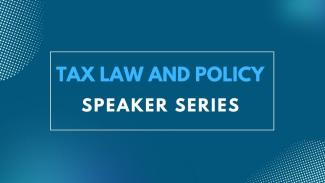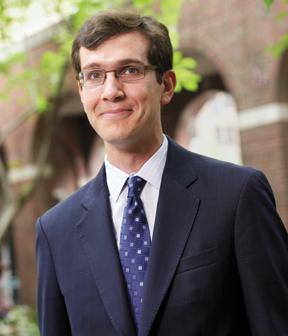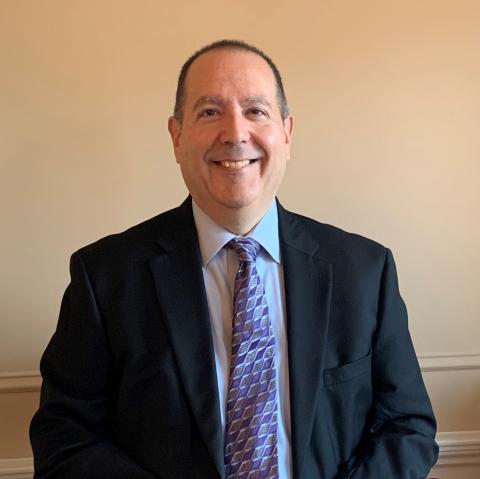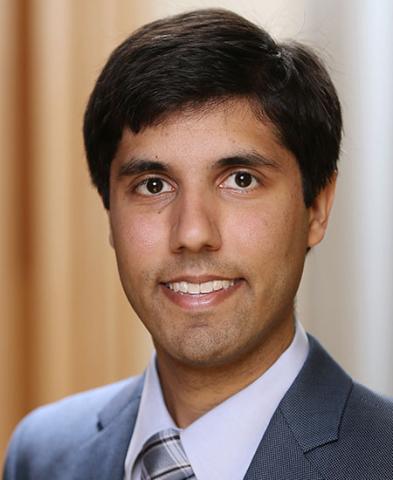The Tax Law and Policy Speaker Series at Allard Law is an academic, interdisciplinary forum for disseminating research on tax law and policy. In past years, the series has featured many leading scholars of tax law and policy from Canada and the rest of the world. The series is often (though not exclusively) held in conjunction with a Tax Policy seminar course offered to UBC law students.

2023 Fall Speaker Series
September 29, 2023, 3-4:30pm - The Transformation of Canadian Social Assistance and its Consequences for Work, Health, and Children's Prosperity
Social Assistance in Canada has changed remarkably since the early 1990s. In this talk, Dr. Hicks will provide an overview of these changes across the provinces and then present research studying how this transformation affected work behaviour, health, and children's long-run prosperity.
This lecture qualifies for 1.5 CPD credits.
Jeffrey Hicks is a Social Science and Humanities Research Council Postdoctoral Fellow at the University of Toronto. He is an applied microeconomist primarily studying the design and implementation of government safety net programs. His research agenda primarily focuses on the design and implementation of taxation and social insurance systems. His current projects use a range of data sources including large-scale linked administrative datasets, web-scraped textual data, and spatial information. Read more here.

Jeffrey Hicks
SSHRC Postdoctoral Fellow,
University of Toronto
October 6, 2023, 3-4:30pm - Distribution Reimagined
The distributional consequences of tax and transfer policies are almost never as certain as they are made out to be, are often different from those described, and should involve analysis that is rarely done. And, that’s even as there is broad agreement that the question of distribution is at the very least relevant and in some cases central to evaluating the wisdom of a change in government fiscal policy. The missing analysis can have important consequences for ongoing policy debates, including the question of how universal or targeted government benefits should be, and others beyond that.
Policymakers’ statements and the boundaries of legislation do not necessarily define what is actually financing what. Answering that question meaningfully requires stepping beyond these formalisms and walking down the causal chain – and asking who, because a new benefit is given (or the opposite), is either paying more or getting less. It requires a form of imagination to explore that question and grounded in the political economy of the government that is involved. This form of analysis brings with it uncertainty and also implications for the desirability of certain tax and transfer policies. Namely, it raises the specter that policies that benefit those other than those with the least resources may end up being financed by those with less -- and this article identifies when this risk is more acute and when it is not, grounded in the political economy of a government.
This lecture qualifies for 1.5 CPD credits.
David C. Kamin’s scholarship focuses on tax and budget policy, and he has served in the White House under President Biden and President Obama. Kamin’s scholarship has covered topics including taxation of the top end, corporate taxation, income support, retirement policy, and budget metrics. Kamin served as deputy assistant to the President and deputy director of the National Economic Council under President Biden from inauguration until May 2022, working on response to the pandemic and on policy related to infrastructure, energy, tax, and budget, among other areas. Kamin also served as director of economic policy for the Biden-Harris transition team from June 2020 until inauguration. Under President Obama, Kamin served as special assistant to the president for economic policy and as special assistant, and later adviser, to the director of the US Office of Management and Budget. Kamin also served on the Obama-Biden transition team and the Clinton-Kaine transition team. Kamin earned a BA in economics and political science with highest honors from Swarthmore College in 2002. He earned a JD magna cum laude from NYU Law in 2009. Read more here.

David Kamin
Charles L. Denison Professor of Law,
New York University
October 17, 2023, 4:30-6pm - Red, White, and Blue—and Also Green: How Energy Policy Can Protect Both National Security and the Environment
This lecture qualifies for 1.5 CPD credits.
Too often, energy policy protects the environment while neglecting national security, or vice versa. Since each goal is critical, this Article shows how to advance both at the same time.
For national security, the key is to avoid depending on the wrong suppliers. If they are vulnerable to attack (like some Middle Eastern producers), they need to be defended. Or, if they are themselves geopolitical threats (like Russia and Iran), their energy exports fund harmful conduct. This Article breaks new ground in showing why suppliers tend to be insecure or menacing: authoritarian regimes—which are more likely to pose these risks—have a comparative advantage in producing oil and gas, since they are less responsive to opposition from environmentalists, local residents, and other groups.
To avoid depending on the wrong suppliers, the U.S. and its allies should pursue two strategies. First, they should cut demand for fossil fuel. Along with making it easier to stop buying from the wrong suppliers, slashing demand also reduces greenhouse gas emissions and pollution. Yet although these are significant national security and environmental ad-vantages, there is an offsetting national security risk: like fossil fuel, the main alternative—clean energy—also can foster dependence on insecure or potentially hostile suppliers (like Congo and China). In response, the U.S. and its allies should ramp up domestic production of clean energy technology, while also encouraging households and businesses to use it.
Second, since the transition to clean energy will take time, the U.S. and its allies also need to tap new sources of fossil fuel in countries that are secure and friendly. Yet since new fossil fuel development raises familiar environmental concerns, this Article proposes three ways to do it while still reducing emissions and pollution. First, these new sources should be as “clean” as possible (for example, natural gas instead of coal). Second, in adding new capacity, the goal should be to replace other fossil fuel sources, not to add to them (for example, so more production in the U.S. means less production in Russia). Third, new sources should be flexible, so they can ramp up and scale back as needed. Fortunately, these shifts are relatively easy for U.S. shale producers—indeed, more so than for others—and can be encouraged with the right regulatory approach.
While government intervention is needed to pursue these goals, policymakers should strive to harness the private sector’s capacity to innovate, cut costs, and enhance quality. A moratorium on new fossil fuel development is counterproductive, entrenching a status quo that depends too much on coal, as well as on insecure and hostile energy suppliers. In-stead, the best approach is to “price” the relevant national security and environmental costs with Pigouvian taxes, motivating businesses and consumers to mitigate these costs and letting them choose how to do it. Yet if Pigouvian taxes are not politically feasible, this Article recommends a heuristic called “the marginal efficiency cost of energy”: policymakers should account for all the social costs of each source—private costs, national security costs, and environmental costs—and strive to replace high-cost sources with low-cost sources. This framework should guide all aspects of energy policy—from permits and regulations to rate-setting, mandates, moratoriums, subsidies, and government leases—so policy-makers stay focused on both environmental and national security goals.
David M. Schizer is Dean Emeritus and Harvey R. Miller Professor of Law & Economics at Columbia Law School. A twenty-five year veteran of the nonprofit world, he became the youngest dean in Columbia Law School’s history at age thirty-five. Schizer also served as the CEO of JDC, a humanitarian organization active in seventy countries with a $365 million annual budget. Schizer is a scholar of nonprofits, tax, energy, and business law. He also clerked for US Supreme Court Justice Ruth Bader Ginsburg. Read more here.

David Schizer
Harvey R. Miller Professor of Law and Economics and Dean Emeritus,
Columbia Law School
October 20, 2023, 3-4:30pm - Hidden Havens: State and Local Governments as Tax Havens?
An international tax haven is usually a low-tax jurisdiction that seeks to attract investment by foreign investors. But, there are many state and local jurisdictions within federal systems that set zero tax rates on personal or corporate income, consumption, property, and wealth in an effort to attract activity from other high-tax jurisdictions. This paper discusses whether subnational tax havens are distinct from intense tax competition, and concludes that in a federal system, the economic implications of the two may be similar, but the policy responses differ subtly. A survey of the empirical evidence on the effect of zero or very low tax rates indicates that the lowest tax jurisdiction may disproportionately benefit from non-real base shifting, but real and avoidance responses also arise in response to smaller tax differentials between non-havens. Turning to the corporate income tax, the paper discusses how legal rules such as formula apportionment, economic nexus, and incorporation rules influence tax competition and the avoidance behaviours of multistate companies.
The paper can be downloaded freely here: https://papers.ssrn.com/sol3/papers.cfm?abstract_id=4521273
This lecture qualifies for 1.5 CPD credits.
David R. Agrawal is an associate professor in the Martin School of Public Policy and Administration and in the Department of Economics at the University of Kentucky. He is also a fellow in the CESifo Research Network and editor in chief of International Tax and Public Finance. Agrawal’s research focuses on state and local tax policy, including theoretical and empirical models of fiscal competition and fiscal federalism. He is particularly interested in the welfare effects of decentralized policies, the effect of digitalization on subnational taxation, and the interjurisdictional mobility of tax bases. He has received both the Peggy and Richard Musgrave Prize and the Young Economists Award from the International Institute of Public Finance. Agrawal holds a PhD in economics from the University of Michigan, an MPP from the University of California–Berkeley, and a BA in economics and political science from the University of Connecticut. Read more here.

David Agrawal
Associate Professor, Martin School of Public Policy & Administration, and Department of Economics,
University of Kentucky
November 17, 2023, 3-4:30pm - The Pivotal Role of Capital Gains in Efficient and Progressive Tax Reform
Capital gains are a form of income that is both taxed at highly preferential rates and extremely concentrated at topmost incomes, thus undercutting the tax system’s progressivity. Several arguments have been made for continuing this tax preference, which is a major contributor to top-end inequalities and tax avoidance stratagems, but most of those arguments can be rebutted. Empirical evidence also weakens the argument that the capital gains tax preference is needed for an efficient and growing economy, and the gains preference actually harms the efficient allocation of economic resources. This study assesses the case for reforms that would increase the gains tax inclusion rate from the current 50 percent to 75 percent but restricted to taxpayers with total gains and/or incomes above specified high thresholds. Such reforms would be much more effective, raise far more revenues, and be much more transparent than the tepid changes affecting capital gains contained in the 2023 federal budget’s revisions of the Alternative Minimum Tax. The targeted changes proposed here would affect relatively few taxpayers and should receive wide public support.
This lecture qualifies for 1.5 CPD credits.
Jonathan Rhys Kesselman joined Simon Fraser University’s School of Public Policy in 2004, where he was a professor and held the Canada Research Chair in Public Finance until his retirement in 2017. Professor Kesselman’s research topics have included wage rate subsidies, the economics of tax avoidance and evasion, reform of the GST and provincial sales taxes, finance of post-secondary education, various child benefit programs, flat taxes, personal and business tax reform, First Nations taxation, federal and provincial payroll taxes, BC fiscal and taxation policies, the distributional impacts of taxes, the “brain drain,” mandatory retirement policies, income splitting, the basic income guarantee, expansion of Canada Pension Plan retirement benefits, and reform of capital gains taxation. Read more here.

J. Rhys Kesselman
Professor Emeritus,
Simon Fraser University
Past Events
- March 6 - Emissions Pricing in Canada: Design and Equity Considerations
Jennifer Winter, Associate Professor of Economics and Scientific Director of the Energy and Environmental Policy research division at The School of Public Policy, University of Calgary - March 13 - Fairness, War and the Income Tax in Canada
Colin Campbell, Associate Professor, Western University, Law - March 27 - A False Start in International Tax Coordination: The Ghost of the UN’s Past
Nikki Teo, Sessional Lecturer and Research Affiliate, University of Sydney
- February 5 - Tax Policy for Inclusive Growth After the Pandemic
Ruud de Mooij, Advisor (Immediate Office), Fiscal Affairs Department, International Monetary Fund (former chief of Tax Policy Division of FAD)
- February 26 - Ten Truths about Tax Havens : Inclusion and the ‘Liberia’ Problem
Steven Dean, Professor, Brooklyn Law School
- March 12 - The Role of the United Nations in Tax Norm Shaping
Michael Lennard, Chief of International Tax Cooperation and Trade in the Financing for Development Office of the United Nations
- March 19 - Covering All the Basics: Reforms for a More Just Society
Lindsay Tedds, Associate Professor of Economics, University of Calgary
- March 26 - Legal Challenges in Creating a Global Tax Regime with OECD Pillar One Blueprint
Jinyan Li, Professor, Osgoode Hall Law School
- February 12 - Can law regulate its own interpretation?
Michael Lang, Professor, WU (Vienna); Chair, Tax Law; Director, LLM Program in International Tax Law; Head, Institute for Austrian and International Tax Law - February 28 - Unintended Consequences of Eliminating Tax Havens
Juan Carlos Suárez Serrato, Professor of Economics, Stanford Graduate School of Business; Faculty Associate, National Bureau of Economic Research - March 6 - Against Destination-Based Residual Profit Allocation?
Itai Grinberg, Professor, Georgetown Law School - March 13 - Equality, Taxation, and Law and Economics in the 21st Century
Zachary Liscow, Professor, Yale Law School - March 27 - US Inequality and Fiscal Progressivity: An Intergenerational Accounting
Alan Auerbach, Robert D. Burch Professor of Law and Economics; Director, Robert D. Burch Center for Tax Policy and Public Finance, Berkeley Law School - April 3 - Tax Expenditures and Horizontal Equity: A Lost Lesson from Stanley Surrey
Reuven S. Avi-Yonah, Irwin I. Cohn Professor of Law; Director, International Tax LLM Program, Michigan Law School
- January 24 - Canada's Radical Federation: The Next 50 Years
Kevin Milligan, Professor; Director, Vancouver School of Economics - February 7 - Controlling the Environmental Costs of Obesity
Roberta Mann, Professor Emerita, School of Law, University of Oregon - March 2 - What's International Tax Law Got To Do With It?
Arthur Cockfield †, Professor, Queen’s Law School - March 7 - Why the Dividend Tax Credit?
Michael Smart, Professor of Economics, University of Toronto - March 23 - The Death and Life of the State and Local Tax Deduction
Daniel Hemel, Professor, NYU Law School
- January 13 - Using Machine Learning to Predict Outcomes in Tax Law
Benjamin Alarie, Professor & Osler Chair in Business Law, Faculty of Law, University of Toronto - January 20 - A Feminist Critique of Canadian Tax Policy: Thoughts on the Past and Hopes for the Future
Claire Young, Professor Emerita, Peter A. Allard School of Law, University of British Columbia - January 27 - Why Comparative Tax Law?
Kim Brooks, Professor of Law, Professor of Accounting and President and Vice-Chancellor, Dalhousie University - February 10 - High Tax Heresy
James R. Hines Jr., L. Hart Wright Collegiate Professor of Law; Richard A. Musgrave Collegiate Professor of Economics, Michigan Law School - March 3 - What is Tax Discrimination?
Michael Knoll, Theodore K. Warner Professor of Law & Professor of Real Estate; Co-Director, Center for Tax Law and Policy, Carey Law School, University of Pennsylvania - March 10 - A Look at Some Canadian Tax Rules: A Very Incomplete International Tool Box
André Lareau, Professeur associé, Faculté de droit, Université Laval - March 17 - Can Anything (Sensible) Be Done About Hybrids?
Graeme Cooper, Professor Emeritus, University of Sydney Law School - March 24 - Rediscovering the Anti-Injunction Act
Kristin Hickman, McKnight Presidential Professor in Law; Distinguished McKnight University Professor; Harlan Albert Rogers Professor in Law; Associate Director, Corporate Institute, Minnesota Law School - March 31 - Collecting the Rent: The Global Battle to Capture MNE Profits
Mitchell Kane, Gerald L. Wallace Professor of Taxation; Editor-in-Chief, Tax Law Review, NYU Law
- January 14 - Challenges in Shifting Canadian Taxation Toward Consumption
J. Rhys Kesselman, Professor Emeritus, School of Public Policy, Simon Fraser University - January 21 - Uncle Same Wants Who?
Allison Christians, Full Professor; H. Heward Stikeman Chair in Tax Law, Faculty of Law, McGill University - January 28 - Piercing the Veil – Private Corporations and the Income of the Affluent
Michael Veall, Professor of Economics, McMaster University - February 11 - The Lesser of Two Evils: Double Tax Treaty Override or Treaty Abuse?
Craig Elliffe, Professor of Law, University of Auckland (New Zealand) - March 3 - The Tax Lives of Uber Drivers
Diane M. Ring, Professor, Dr. Thomas F. Carney Distinguished Scholar, Boston College Law School - March 17 - Using the “Smart Return” to Reduce Tax Evasion
Joseph Bankman, Ralph M. Parsons Professor of Law and Business, Stanford Law School - March 31 - The Relationship Between Taxation and Investment Agreements
Martha O’Brien, Professor Emerita, Faculty of Law, University of Victoria
- January 30 - Corporate Tax Reform: Issues and Prospects for Canada
Robin Boadway, Professor Emeritus, Department of Economics, Queen’s University - February 6 - The Policy Underpinnings of the BEPS Project
Richard Vann, Professor, Challis Chair of Law, University of Sydney Law School - February 27 - Citizenship Taxation
Ruth Mason, Edwin S. Cohen Distinguished Professor of Law and Taxation; Class of 1941 Research Professor of Law; Director, Virginia Center for Tax Law, University of Virginia School of Law - March 13 - Designing a Minimum Tax on Foreign Business Income
Stephen Shay, Paulus Endowment Senior Tax Fellow; Adjunct Professor, Boston College Law School - March 20 - Taxation and Inequality in Canada and the U.S.: Two Stories or One?
Eric M. Zolt, Michael H. Schill Distinguished Professor of Law, UCLA - March 27 - The Assignment of Tax Attributes to Hedged Positions in Shares
Tim Edgar †, Professor, Osgoode Hall Law School, York University - April 10 - The WTO Consistency of Carbon Footprint Taxes
Carol McAusland, Professor, Food and Resource Economics, Faculty of Land and Food Systems, University of British Columbia